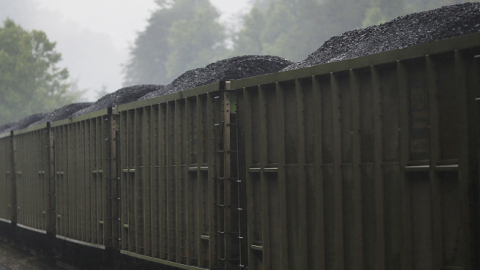A panel of notables, co-chaired by Michael Bloomberg, Henry Paulson, and Thomas Steyer, has launched a new effort to sell the idea of more U.S. action on climate change. The group has released a report titled, Risky Business: The Economic Risks of Climate Change in the United States. At about the same time, Mr. Paulson published a New York Times opinion piece revealing that his personal goal is a carbon tax. He bases this preference, he says, on his business experience with risk.
The panel is clearly right that climate change presents a gradually growing risk to the United States. In fact, though, the Risky Business report is a poor guide to managing that risk. The report’s estimates, for instance, exclude America’s great capacity to adapt to climate change, which is among the highest of all countries. The U.S. economy commands a vast stock of capital with which to prevent harm from climate change or to repair it. The openness of U.S. markets greatly augments the process of adjusting to a changing climate. And open access to the political process is already nudging state and local governments toward taking the needed countermeasures. By not quantifying the likely effects of these factors, the Risky Business study built-in a bias toward greatly overstating the actual risks.
The even bigger problem is that lowering U.S. emissions is, itself, far from risk-free, and Mr. Paulson’s plea for a carbon tax exemplifies the problem. The Paulson piece never explicitly acknowledges that a carbon tax entails an economic cost. But by substituting more costly resources for cheaper fossil fuels, a tax would lower U.S. productivity. Instead, he throws up a cloud of rhetoric promising that a tax will lead to great innovation, and of course “jobs.”
In fact, though, a recent Brookings Institution study by Charles Frank shows that the main effect of a carbon tax would be to induce power companies to switch from coal to natural gas. Even with a hefty price on carbon emissions, the study shows, today’s wind and solar power sources cannot compete with natural gas. Now, maybe more switching from coal to natural gas would be a good thing, and maybe not, but it certainly does not amount to the great surge in innovation about which Mr. Paulson is fantasizing.
Mr. Paulson also maintains that the carbon tax is vital to persuading China to curb its emissions. This claim is crucial, because U.S. emission controls can have only a trivial direct effect on global climate. Since 2005, U.S. emissions have fallen while those of the developing countries have soared. Developing country emissions now exceed those of the entire industrialized world. China is by far the world’s biggest emitter. This new reality implies that nothing Washington can do domestically will stop climate change.
Nor, despite Mr. Paulson’s claims, is there much reason to think that adopting a U.S. carbon tax would cause Beijing to do the same. China’s Communist Party, after all, flouts Western norms on human rights, on intellectual property, and even on market-based exchange rates. Why should climate be different? To the contrary, that high Party officials are extracting fortunes from the massively polluting state owned enterprises would seem to cast an especially dark shadow of doubt over hopes for change in this area. Yet Mr. Paulson, a self-proclaimed expert on avoiding needless risks, urges the United States to incur the costs of a carbon tax based mainly on the rather far-fetched hope that it will induce Beijing to change its behavior.
Someday, China’s leaders may, for their own reasons, alter their stance on climate. If so, and if Beijing can verify that it will adopt a price on carbon emissions, Washington should be ready to match it. For the foreseeable future, though, Beijing’s verifiable preferred price on carbon is zero. Until that number changes, the main U.S. line of defense against the risks of climate change is not a carbon tax. It remains a free and productive economy.


















